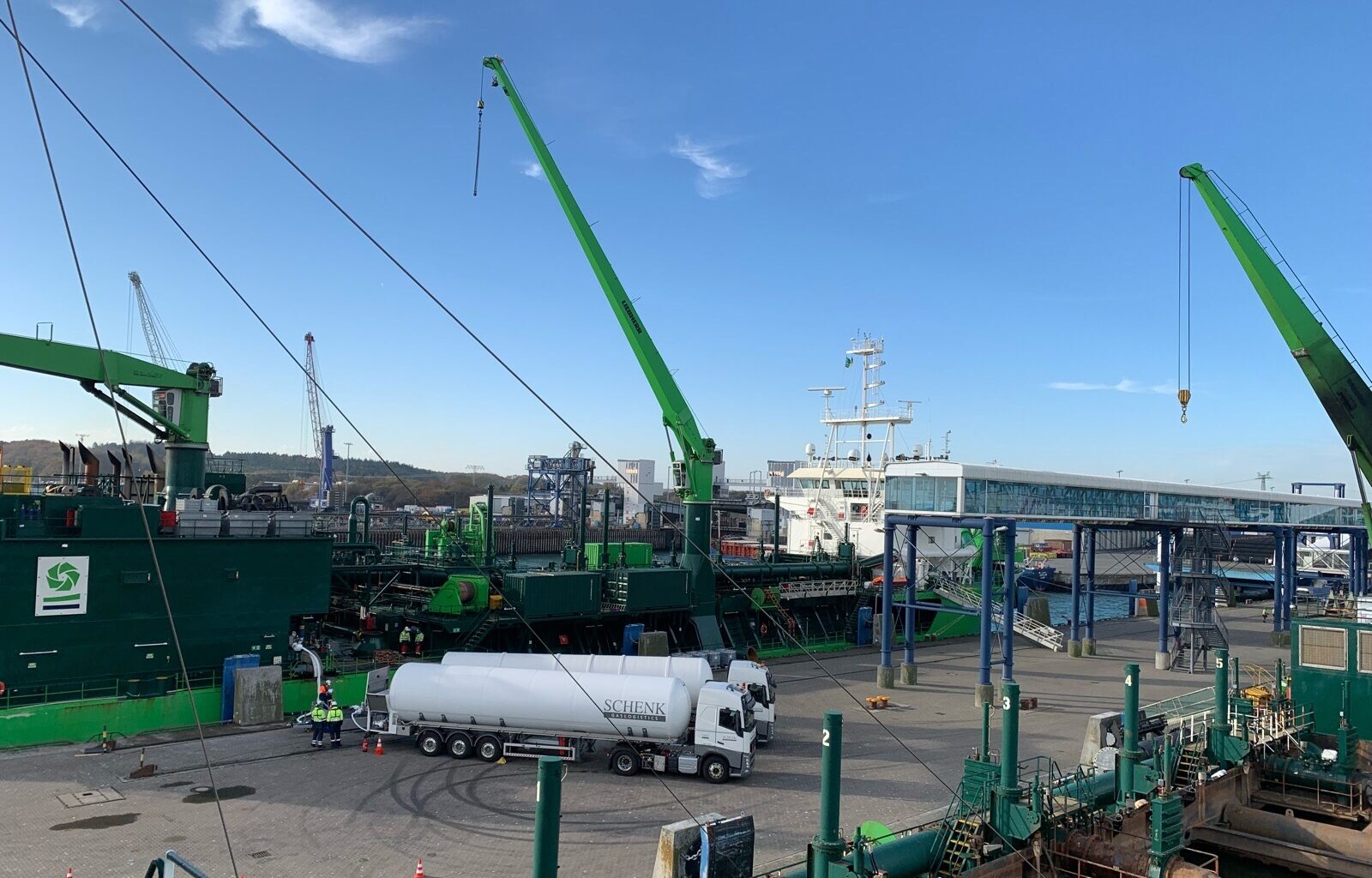LNG, Germany also has its Piombino anti-regasification terminal

Since the German government made known the location of the regasification terminal, an increasingly robust resistance has formed in Mukran. Here because. The article by Pierluigi Mennitti from Berlin
The German Piombino is called Mukran. It is a small industrial port along the east coast of the island of Rügen, the tourist paradise on the Baltic which in these parts they call Ostsee, East Sea, and which has returned to being the buen retiro of Berliners after the reunification has returned more of thirty years ago this Eastern Riviera to its entire capital.
Mukran, on the other hand, is not beautiful. It is attached to another port town, Sassnitz, a cascade of small houses perched on a small hill that descend down to the sea, where the commercial piers stretch out. From here the ferries leave for Denmark and Sweden, few trips in the harsh winter months that multiply in the summer ones. Mukran is in fact the industrial annex of Sassnitz.
THE MUKRAN REGASIFIER
In the waters in front of the port, the German government has decided to locate a new floating regasification terminal, the fourth in order of succession, after three were built in record time to partially remedy the end of the energy link with Russia. All built smoothly and without significant protests, if we exclude the feeble opposition of environmental organizations. But this time it's different. Since the government announced the location, an increasingly robust resistance has formed on the island, made up of citizens' associations, environmental groups and local politicians which has also forced the regional government of Mecklenburg-Vorpommern to take sides against the project , the one who flirted with Gazprom until the last moment, so much so that he created a fake foundation that was supposed to advise international companies engaged in the completion of Nord Stream 2 to circumvent American sanctions.
THE LAW FOR THE ACCELERATION OF LNG
The story has taken a step forward. Last week, in the last session before the summer break, the Bundestag approved a reform of the acceleration law for liquid natural gas which made it possible to indicate the Mukran site for the construction of the new regasification plant. According to government plans, two floating LNG vessels with an annual capacity of ten billion cubic meters of gas are to be positioned in the waters off the port of Mukran. The goal is for the terminal to be available for winter supply in early 2024.
Robert Habeck, the green economy minister to whom Olaf Scholz has entrusted the management of the energy crisis, defended the project. "I am aware of the disputes at the local level, but my job is to secure the country's energy supply," he said in the Budnestag debate.
Habeck and Chancellor Scholz himself went to the island several times to try to convince local citizens and politicians. Without success.
THE REASONS FOR THE PROTESTS
Looking at the bay overlooked by the port of Mukran, one can sense the disappointment of the inhabitants. A long strip of white sand stretches south for kilometers, bordering turquoise blue water which, apart from temperatures, has little to envy of southern European seaside destinations. Along the coast, small towns with early 20th century architecture follow one another, today renowned health resorts such as Binz and Sellin, which in five months could appear on the regasification ships. "They could lose the tourist appellation of health resorts and it would be enormous economic damage," says Wolfgang Kannengießer, founder of Lebenswertes Rügen , the civic initiative that has taken over the protest. The inhabitants rely on the report of a group of experts who judge the government's concern over the shortage of supply to be unfounded and believe that the planned regasification terminals will be too many and in part superfluous compared to the needs.
HEALTH TOURISM
Health tourism, on the other hand, is an important pillar of Rügen's economy. In particular, its eastern coast is dotted with seaside resorts. Binz and Sassnitz are small architectural pearls from the early 20th century that have found a way out of the health tourism industry to escape the depression that marks many peripheral areas of former East Germany and are now afraid of losing tourists and money. In the middle of the bay there is also the old mammoth popular holiday resort wanted by Hitler, Prora, never completed and fell into ruin during the years of the GDR, partly used as barracks and for a decade taken over by a real estate company that he restored it transforming it into a more or less luxurious structure. Even those who have invested millions of euros here are not happy to find a regasification plant as a panorama.
THE ENVIRONMENT
Then there is the environment: the fragile ecosystem of the Baltic, the death of seals in recent years, the protected areas for the protection of biodiversity now threatened by the dredges that trace the trenches for the mini gas pipelines that will bring the gas from the ships to the ground terminal.
"And the government hasn't even presented any prospects for the localization of hydrogen," complains the Minister of the Environment of Mecklenburg-Vorpommern Till Backhaus, also a Social Democrat, like the president Manuela Schwesig and like the chancellor. Well, the idea that one day gas would be replaced by hydrogen could have given local politicians a foothold to support Mukran's choice. Now, however, two truths collide, two needs, two truths that, like nowhere else in Germany, are unable to find the common ground of a compromise.
This is a machine translation from Italian language of a post published on Start Magazine at the URL https://www.startmag.it/energia/germania-proteste-rigassificatore-mukran/ on Fri, 14 Jul 2023 11:16:29 +0000.
